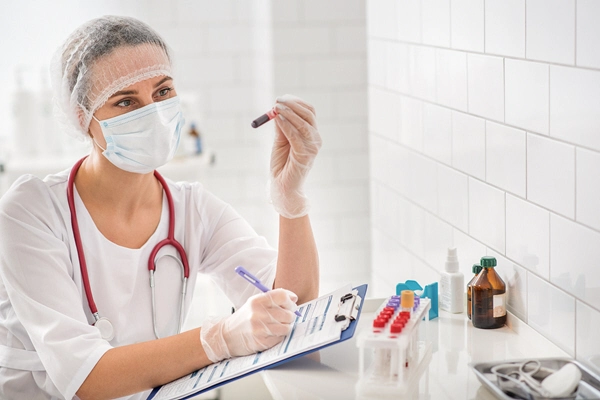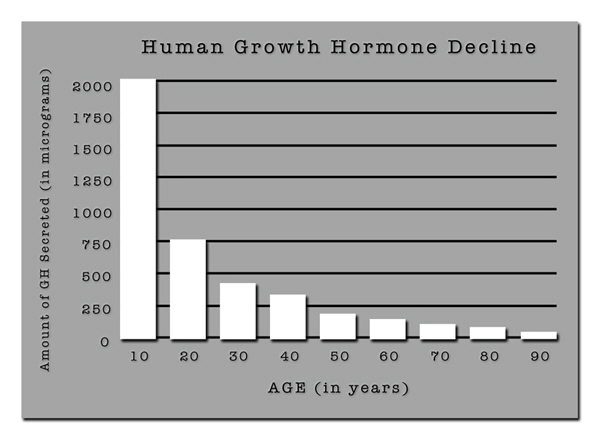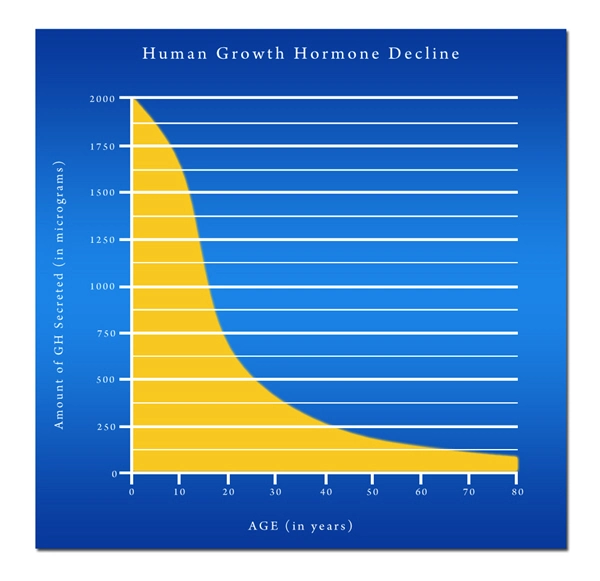Introduction to Late-Onset Hypogonadism
Late-onset hypogonadism (LOH), commonly known as age-related low testosterone, is a clinical and biochemical syndrome associated with advancing age in men. It is characterized by a deficiency in serum testosterone levels and the presence of symptoms such as reduced libido, erectile dysfunction, decreased muscle mass, increased body fat, and mood disturbances. As the male population in the United States continues to age, the prevalence of LOH is expected to rise, making it a significant public health concern.
The Importance of Research in LOH
Research plays a pivotal role in enhancing the understanding and management of LOH. In the US, ongoing studies are crucial for developing effective treatments that can improve the quality of life for affected men. The focus of research in this field is multifaceted, encompassing the identification of risk factors, the development of diagnostic tools, and the exploration of therapeutic interventions.
Identifying Risk Factors and Diagnostic Advancements
One of the primary objectives of research is to identify the risk factors associated with LOH. Studies have shown that obesity, chronic diseases, and certain lifestyle factors can contribute to the development of this condition. By understanding these risk factors, healthcare providers can implement preventive strategies and early interventions.
Moreover, research has led to significant advancements in diagnostic tools. The development of more accurate and sensitive assays for measuring testosterone levels has improved the ability to diagnose LOH. Additionally, research is exploring the use of biomarkers and genetic testing to identify individuals at higher risk of developing the condition, which could lead to earlier diagnosis and treatment.
Exploring Therapeutic Interventions
Therapeutic interventions for LOH have been a major focus of research in the US. Testosterone replacement therapy (TRT) is the most common treatment, but it is not without risks and side effects. Research is ongoing to optimize TRT protocols, including the development of new delivery methods such as gels, patches, and long-acting injections, which can improve patient compliance and reduce side effects.
Beyond TRT, researchers are investigating alternative treatments, such as selective androgen receptor modulators (SARMs) and other hormonal therapies. These novel treatments aim to provide the benefits of testosterone without the associated risks. Additionally, lifestyle interventions, including diet and exercise, are being studied as complementary approaches to pharmacological treatments.
The Role of Clinical Trials
Clinical trials are essential for validating the safety and efficacy of new treatments for LOH. In the US, numerous clinical trials are underway to test the effectiveness of various therapeutic options. These trials not only provide valuable data on treatment outcomes but also help to identify potential side effects and long-term risks associated with different interventions.
Challenges and Future Directions
Despite the progress made, challenges remain in the research and treatment of LOH. One of the main challenges is the variability in symptoms and testosterone levels among individuals, which complicates diagnosis and treatment. Additionally, there is a need for more long-term studies to assess the safety and efficacy of treatments over extended periods.
Looking to the future, research in LOH is likely to focus on personalized medicine approaches. By tailoring treatments to individual patients based on their genetic profile, lifestyle, and specific symptoms, it may be possible to achieve better outcomes. Furthermore, increased collaboration between researchers, healthcare providers, and patients will be crucial for advancing the field and improving the management of LOH.
Conclusion
The role of research in improving late-onset hypogonadism treatments in the US cannot be overstated. Through ongoing studies, significant strides have been made in understanding the condition, developing diagnostic tools, and exploring therapeutic interventions. As research continues to evolve, it holds the promise of better treatments and improved quality of life for American men affected by LOH.

- Exploring Alternative Therapies for Late-Onset Hypogonadism in Middle-Aged and Older Men [Last Updated On: February 25th, 2025] [Originally Added On: February 25th, 2025]
- Economic Impact of Late-Onset Hypogonadism on U.S. Men's Healthcare [Last Updated On: March 17th, 2025] [Originally Added On: March 17th, 2025]
- Late-Onset Hypogonadism: Impact on Muscle Mass and Management in Aging American Men [Last Updated On: March 18th, 2025] [Originally Added On: March 18th, 2025]
- Genetic Factors in Late-Onset Hypogonadism: Insights for American Males [Last Updated On: March 19th, 2025] [Originally Added On: March 19th, 2025]
- Exploring Late-Onset Hypogonadism: Current Treatments and Future Innovations [Last Updated On: March 20th, 2025] [Originally Added On: March 20th, 2025]
- Late-Onset Hypogonadism: Symptoms, Impacts, and Treatment in American Males [Last Updated On: March 20th, 2025] [Originally Added On: March 20th, 2025]
- Managing Late-Onset Hypogonadism: Symptoms, Lifestyle, and Medical Interventions for American Men [Last Updated On: March 20th, 2025] [Originally Added On: March 20th, 2025]
- Late-Onset Hypogonadism: Effects on Mood, Energy, and Management in American Men [Last Updated On: March 21st, 2025] [Originally Added On: March 21st, 2025]
- Late-Onset Hypogonadism: Understanding, Diagnosing, and Managing Low Testosterone in American Men [Last Updated On: March 21st, 2025] [Originally Added On: March 21st, 2025]
- Nutrition's Role in Managing Late-Onset Hypogonadism in American Males [Last Updated On: March 21st, 2025] [Originally Added On: March 21st, 2025]
- Late-Onset Hypogonadism: Impact on Fertility and Treatment Options for American Men [Last Updated On: March 22nd, 2025] [Originally Added On: March 22nd, 2025]
- Understanding Late-Onset Hypogonadism: Risks and Benefits of Testosterone Therapy [Last Updated On: March 22nd, 2025] [Originally Added On: March 22nd, 2025]
- Early Detection and Management of Late-Onset Hypogonadism in American Males [Last Updated On: March 22nd, 2025] [Originally Added On: March 22nd, 2025]
- Managing Late-Onset Hypogonadism in Aging American Men: Symptoms, Treatment, and Lifestyle [Last Updated On: March 22nd, 2025] [Originally Added On: March 22nd, 2025]
- Exercise as a Key Strategy for Managing Late-Onset Hypogonadism in American Males [Last Updated On: March 23rd, 2025] [Originally Added On: March 23rd, 2025]
- Late-Onset Hypogonadism: Benefits of Early Intervention in American Men [Last Updated On: March 23rd, 2025] [Originally Added On: March 23rd, 2025]
- Late-Onset Hypogonadism: Impacts on Cognitive Function and Therapeutic Approaches [Last Updated On: March 23rd, 2025] [Originally Added On: March 23rd, 2025]
- Managing Late-Onset Hypogonadism: Diagnosis, Treatment, and Lifestyle Strategies for Men Over 40 [Last Updated On: March 23rd, 2025] [Originally Added On: March 23rd, 2025]
- Exploring the Link Between Late-Onset Hypogonadism and Diabetes in American Males [Last Updated On: March 23rd, 2025] [Originally Added On: March 23rd, 2025]
- Managing Late-Onset Hypogonadism: Impacts, Diagnosis, and Treatment in American Men [Last Updated On: March 23rd, 2025] [Originally Added On: March 23rd, 2025]
- Dietary Strategies to Manage Late-Onset Hypogonadism in American Men [Last Updated On: March 23rd, 2025] [Originally Added On: March 23rd, 2025]
- Managing Late-Onset Hypogonadism: Symptoms, Treatment, and Societal Impact on American Men [Last Updated On: March 24th, 2025] [Originally Added On: March 24th, 2025]
- Emotional Journey of Late-Onset Hypogonadism in American Men: Coping and Support [Last Updated On: March 24th, 2025] [Originally Added On: March 24th, 2025]
- Managing Late-Onset Hypogonadism: Symptoms, Diagnosis, and Treatment Options for American Men [Last Updated On: March 24th, 2025] [Originally Added On: March 24th, 2025]
- Late-Onset Hypogonadism: Effects on Health and Importance of Early Intervention [Last Updated On: March 24th, 2025] [Originally Added On: March 24th, 2025]
- Late-Onset Hypogonadism: Enhancing Patient Education and Screening in the US [Last Updated On: March 24th, 2025] [Originally Added On: March 24th, 2025]
- Late-Onset Hypogonadism: Symptoms, Risks, and Management Strategies for Aging Men [Last Updated On: March 24th, 2025] [Originally Added On: March 24th, 2025]
- Late-Onset Hypogonadism: Prevalence, Stigma, and Treatment in American Men [Last Updated On: March 24th, 2025] [Originally Added On: March 24th, 2025]
- Managing Late-Onset Hypogonadism: Holistic Approaches for American Males [Last Updated On: March 24th, 2025] [Originally Added On: March 24th, 2025]
- Late-Onset Hypogonadism: Symptoms, HRT Benefits, and Safety in American Men [Last Updated On: March 25th, 2025] [Originally Added On: March 25th, 2025]
- Advocating for Better Late-Onset Hypogonadism Care: A Call to American Men [Last Updated On: March 25th, 2025] [Originally Added On: March 25th, 2025]
- Late-Onset Hypogonadism: Myths, Facts, and Management Strategies for American Men [Last Updated On: March 25th, 2025] [Originally Added On: March 25th, 2025]
- Late-Onset Hypogonadism: Impact on Sleep and Management Strategies for American Men [Last Updated On: March 25th, 2025] [Originally Added On: March 25th, 2025]
- Late-Onset Hypogonadism in American Males: Diagnosis, Management, and Multidisciplinary Care [Last Updated On: March 26th, 2025] [Originally Added On: March 26th, 2025]
- Stress and Late-Onset Hypogonadism: Impact on American Males' Hormonal Health [Last Updated On: March 26th, 2025] [Originally Added On: March 26th, 2025]
- Late-Onset Hypogonadism: Impacts on American Men's Careers and Workplace Strategies [Last Updated On: March 26th, 2025] [Originally Added On: March 26th, 2025]
- Late-Onset Hypogonadism in Aging American Men: Symptoms, Risks, and Management Strategies [Last Updated On: March 26th, 2025] [Originally Added On: March 26th, 2025]
- Late-Onset Hypogonadism in Aging American Men: Symptoms, Risks, and Management Strategies [Last Updated On: March 26th, 2025] [Originally Added On: March 26th, 2025]
- Late-Onset Hypogonadism: Impact on American Males and the Vital Role of Family Support [Last Updated On: March 26th, 2025] [Originally Added On: March 26th, 2025]
- Late-Onset Hypogonadism: Effects on American Men's Relationships and Management Strategies [Last Updated On: March 26th, 2025] [Originally Added On: March 26th, 2025]
- Financial Impact of Late-Onset Hypogonadism on American Men: Costs and Strategies [Last Updated On: March 27th, 2025] [Originally Added On: March 27th, 2025]
- Innovative Technologies Revolutionizing Late-Onset Hypogonadism Diagnosis in American Males [Last Updated On: March 27th, 2025] [Originally Added On: March 27th, 2025]
- Cultural Perceptions and Management of Late-Onset Hypogonadism in American Men [Last Updated On: March 27th, 2025] [Originally Added On: March 27th, 2025]
- Legal Aspects of Late-Onset Hypogonadism: Diagnosis, Treatment, and Rights in the U.S. [Last Updated On: March 27th, 2025] [Originally Added On: March 27th, 2025]
- Late-Onset Hypogonadism: Diagnosis, Treatments, and Lifestyle Management for American Men [Last Updated On: March 27th, 2025] [Originally Added On: March 27th, 2025]
- Diagnosing Late-Onset Hypogonadism: A Guide for American Males [Last Updated On: March 27th, 2025] [Originally Added On: March 27th, 2025]
- Managing Late-Onset Hypogonadism: Strategies for Maintaining Independence in American Men [Last Updated On: March 27th, 2025] [Originally Added On: March 27th, 2025]
- Late-Onset Hypogonadism in American Males: Prevalence, Monitoring, and Management Strategies [Last Updated On: March 28th, 2025] [Originally Added On: March 28th, 2025]
- Mental Health Professionals' Vital Role in Managing Late-Onset Hypogonadism in Aging Males [Last Updated On: March 28th, 2025] [Originally Added On: March 28th, 2025]
- Late-Onset Hypogonadism: Community Support and Management Strategies for Aging American Males [Last Updated On: March 28th, 2025] [Originally Added On: March 28th, 2025]
- Managing Late-Onset Hypogonadism in Aging American Men: Symptoms, Diagnosis, and Treatment [Last Updated On: March 29th, 2025] [Originally Added On: March 29th, 2025]
- Late-Onset Hypogonadism: Diagnosis Journey and Management for American Men [Last Updated On: March 29th, 2025] [Originally Added On: March 29th, 2025]
- Managing Late-Onset Hypogonadism: Diet, Exercise, Sleep, and Lifestyle Strategies for American Men [Last Updated On: April 1st, 2025] [Originally Added On: April 1st, 2025]
- Late-Onset Hypogonadism: Impact on Self-Esteem and Management Strategies for American Men [Last Updated On: April 1st, 2025] [Originally Added On: April 1st, 2025]
- Navigating Insurance Coverage for Late-Onset Hypogonadism Treatment in American Men [Last Updated On: April 2nd, 2025] [Originally Added On: April 2nd, 2025]
- Managing Late-Onset Hypogonadism: The Vital Role of Peer Support for American Males [Last Updated On: April 4th, 2025] [Originally Added On: April 4th, 2025]
- Late-Onset Hypogonadism: Symptoms, Social Impact, and Management Strategies for American Men [Last Updated On: April 6th, 2025] [Originally Added On: April 6th, 2025]
- Managing Late-Onset Hypogonadism: Stress Reduction Strategies for American Men [Last Updated On: April 7th, 2025] [Originally Added On: April 7th, 2025]
- Patient Advocacy's Crucial Role in Managing Late-Onset Hypogonadism in American Men [Last Updated On: April 9th, 2025] [Originally Added On: April 9th, 2025]
- Late-Onset Hypogonadism: Symptoms, Diagnosis, and Management in American Males [Last Updated On: April 9th, 2025] [Originally Added On: April 9th, 2025]
- Managing Late-Onset Hypogonadism: A Holistic Approach for American Men's Mental Health [Last Updated On: April 9th, 2025] [Originally Added On: April 9th, 2025]
- Late-Onset Hypogonadism: Impact, Diagnosis, and Management in American Males [Last Updated On: April 11th, 2025] [Originally Added On: April 11th, 2025]
- Understanding Late-Onset Hypogonadism: Symptoms, Detection, and Holistic Management in American Men [Last Updated On: April 12th, 2025] [Originally Added On: April 12th, 2025]
- Nutritionists' Role in Managing Late-Onset Hypogonadism in American Males [Last Updated On: April 12th, 2025] [Originally Added On: April 12th, 2025]
- Exercise as a Non-Pharmacological Approach to Managing Late-Onset Hypogonadism in American Men [Last Updated On: April 13th, 2025] [Originally Added On: April 13th, 2025]



List of USA state clinics - click a flag below for blood testing clinics.
Word Count: 609



















































